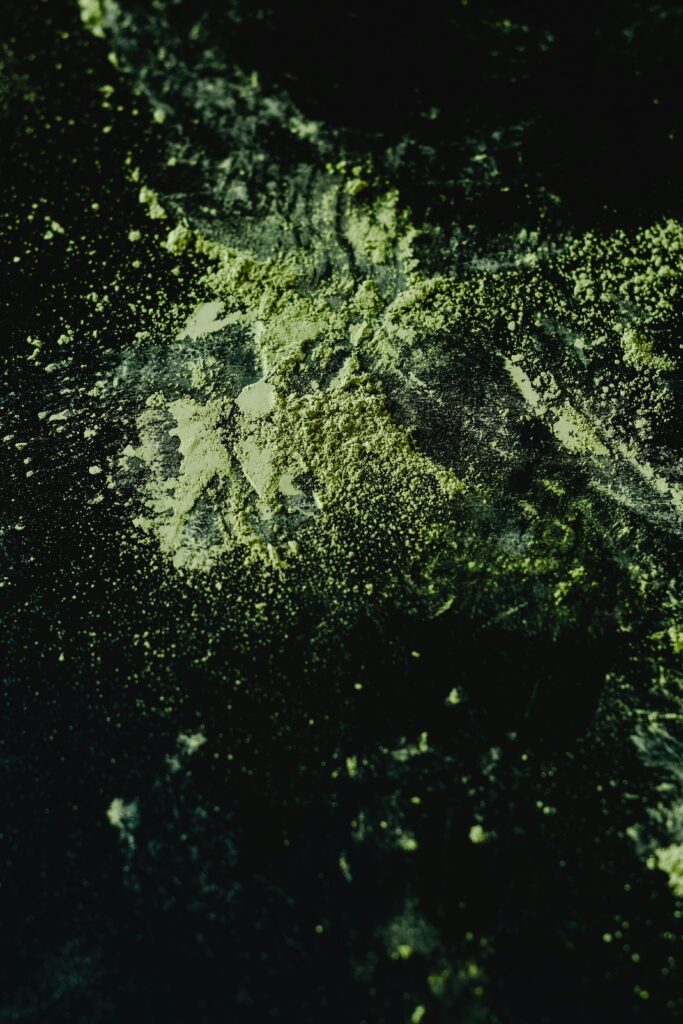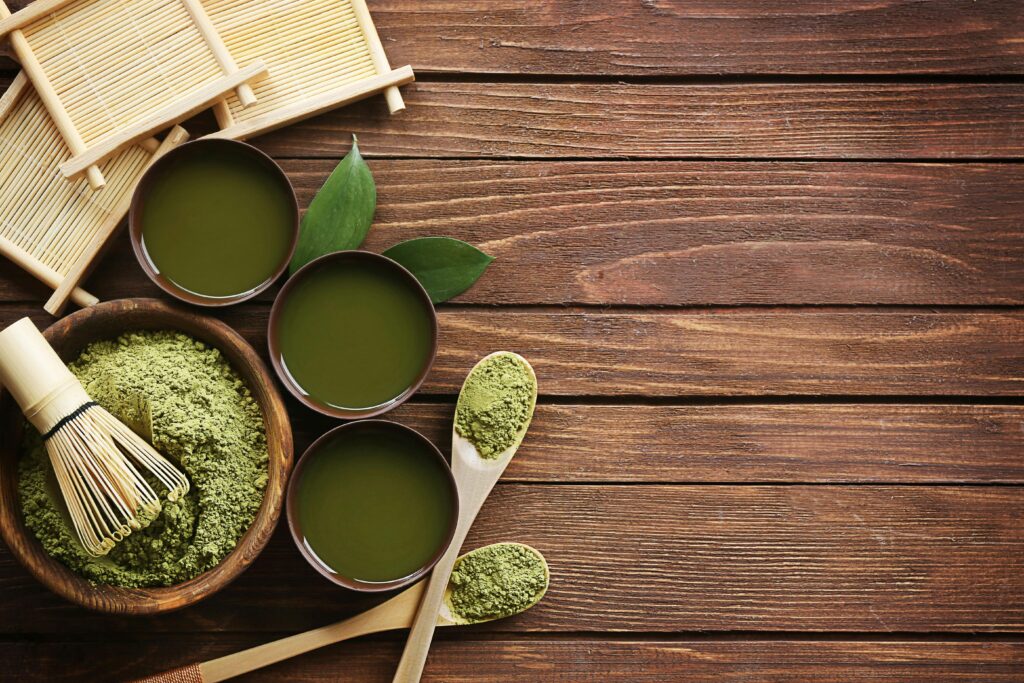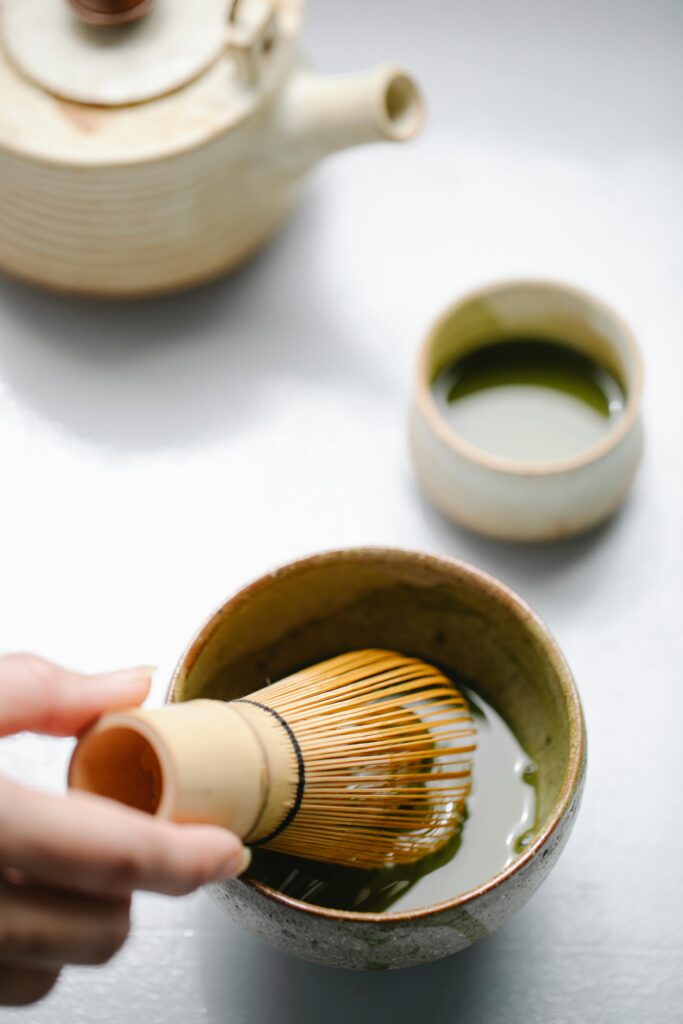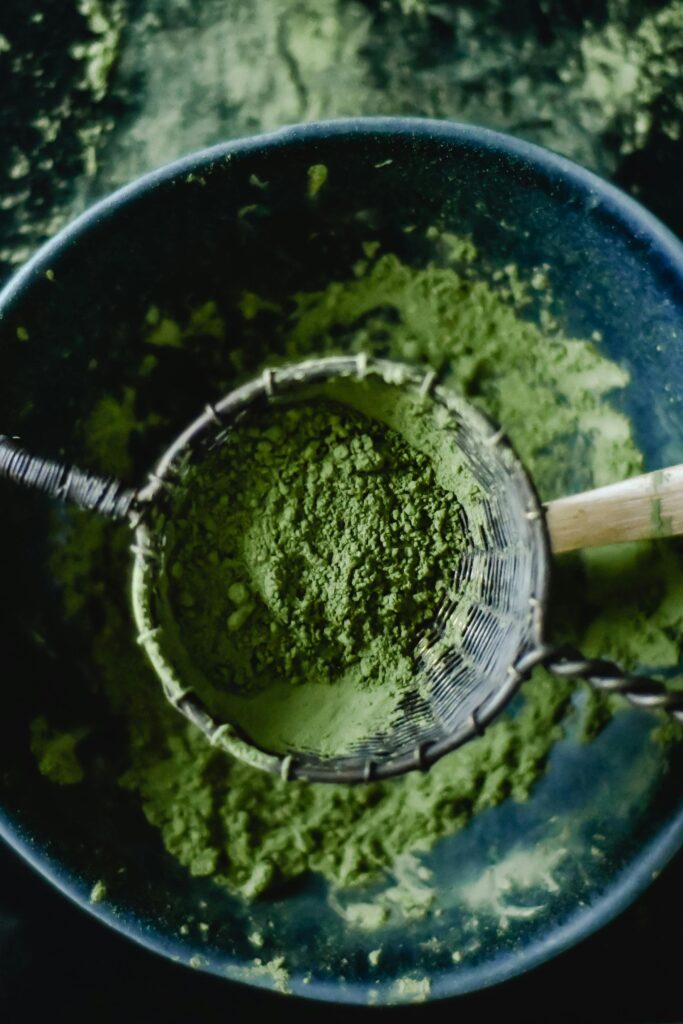Are you a Matcha seller? Join as a Vendor
Wild Foods emerged from an unconventional journey in 2014 when Colin Stuckert, a former poker player turned CrossFit gym owner, founded the company in Austin, Texas. What started as a vision during an 18-hour drive became a mission to help people reconnect with ancestral nutrition through clean, transparently sourced superfood ingredients.
The cornerstone of Wild Foods’ matcha offering lies in its partnership with a 109-year-old farm in Kagoshima City, Japan. This isn’t just marketing heritage—it’s a commitment to authentic quality that demands tea plants at least 50 years old, with many ranging from 75 to 100 years.
The farm’s location in Kagoshima provides ideal growing conditions that have been refined across generations. This multi-generational wisdom translates directly into the umami-rich flavor profile that defines their ceremonial grade matcha.
Wild Foods sources only first flush leaves—known as ichibancha in Japanese—harvested by hand to capture the youngest, most tender growth. The shade-growing process covers tea plants for several weeks before harvest, naturally increasing chlorophyll and amino acid content.
The grinding process exemplifies their dedication to tradition. Using granite stone wheels that rotate slowly prevents heat damage to delicate leaves. This painstaking method produces just 30 grams of finished matcha per hour, but preserves the authentic character that fast industrial processing destroys.
Every batch of Wild Foods matcha carries certified organic status, produced without synthetic pesticides or fertilizers. The company maintains transparent supply chains with ethical labor practices and eco-conscious harvesting methods that respect both people and environment.
Their ceremonial grade classification represents the highest quality designation in matcha production, reserved for powder suitable for traditional tea ceremonies and discerning daily consumption.
Wild Foods extends beyond single products to embrace a broader philosophy of optimal nutrition through clean ingredients. This “Wild Lifestyle” approach recognizes that modern wellness requires reconnecting with foods our ancestors would recognize—minimally processed, transparently sourced, and nutritionally dense.
From Austin to your cup, Wild Foods delivers matcha that honors Japanese tradition while serving contemporary health-conscious consumers. Their commitment to quality over convenience ensures every serving delivers the vibrant green color, smooth texture, and complex flavor that only authentic ceremonial grade matcha can provide.
Wild Foods offers ceremonial grade matcha powder that represents their commitment to quality and traditional Japanese tea cultivation. Their flagship matcha product is sourced from a century-old farm and produced using time-honored methods that preserve the authentic character of this revered green tea.
The company’s Wild Matcha is classified as ceremonial grade, the highest quality designation for matcha powder. This certified organic matcha is produced without synthetic pesticides or fertilizers, ensuring a clean and sustainable product that aligns with health-conscious consumer values.
The matcha undergoes traditional tencha (shade-grown tea leaf) production, where tea plants are covered for several weeks before harvest. This shading process increases chlorophyll and amino acid content, particularly glutamate molecules, which enhances the distinctive umami (savory) flavor profile that characterizes premium matcha.
Wild Foods emphasizes that quality matcha requires tea plants at least 50 years old, with many of their source plants ranging from 75 to 100 years old. This age requirement reflects the importance of terroir and the accumulated wisdom of generations of tea farmers in developing superior flavor profiles.
The matcha is harvested during the first flush, known as ichibancha in Japanese, which yields the most premium leaves. This labor-intensive hand-picking process ensures that only the youngest, most tender leaves are selected, resulting in superior flavor and texture.
Following harvest, the leaves undergo steaming to preserve freshness, then are sorted, de-stemmed, and de-veined to produce tencha. The final grinding process uses traditional granite stone wheels that rotate slowly to avoid burning the delicate leaves. This meticulous process takes approximately one hour to grind just 30 grams of finished matcha powder, highlighting the time and care required for authentic production.
Wild Foods emerged in 2014 during the burgeoning health and wellness market, founded by Colin Stuckert in Austin, Texas. What drove this poker player turned entrepreneur to establish the company was a confluence of factors: growing consumer demand for transparency, a desire to reconnect with ancestral eating habits, and recognition of superfoods’ power to enhance well-being.
The company quickly established itself as a purveyor of superfood ingredients with an emphasis on natural sourcing and transparent practices. Wild Foods‘ mission centers on helping individuals embrace a “Wild Lifestyle” through optimal nutrition, a philosophy that resonates with health-conscious consumers seeking alternatives to conventional processed foods.
At the heart of Wild Foods‘ offerings is their ceremonial grade matcha powder, sourced from a 109-year-old farm in Kagoshima City, Japan, a region renowned for its ideal matcha-growing climate. The company emphasizes that quality matcha requires tea plants at least 50 years old, with many ranging from 75 to 100 years.
The traditional tencha production process involves shade-growing, a method employed to enhance chlorophyll and amino acid content, resulting in richer umami flavor. This process covers tea plants for several weeks before harvest, a technique dating back centuries that’s crucial for developing matcha’s distinctive taste and vibrant green color.
Wild Foods Matcha is certified organic and produced without synthetic pesticides or fertilizers, aligning with growing consumer demand for clean, sustainable products. The company emphasizes ethical supply chains, partnering with suppliers who follow fair labor, traceable sourcing, and eco-conscious harvesting practices.
Colin Stuckert, a poker player turned entrepreneur, founded Wild Foods in Austin, Texas, with a mission to provide clean, nutritious, and transparent superfood ingredients that connect consumers to their ancestral roots through a ‘Real Food’ approach.
Wild Foods established sourcing partnership with a century-old farm in Kagoshima City, Japan, known for its ideal matcha-growing climate. The farm had been cultivating matcha for 109 years, representing generations of expertise in traditional tencha production methods.
Wild Foods launched their flagship ceremonial grade matcha powder, emphasizing shade-grown production methods and sourcing from tea plants aged 50-100 years. The product achieved certified organic status, produced without synthetic pesticides or fertilizers.
Find below some answers to the most common questions about Wild Foods.
There are no results matching your search
Click below to see the profile of a matcha brands similar to Wild Foods.
No results available





Join our mailing list to receive updates and exclusive tips.
There are no results matching your search